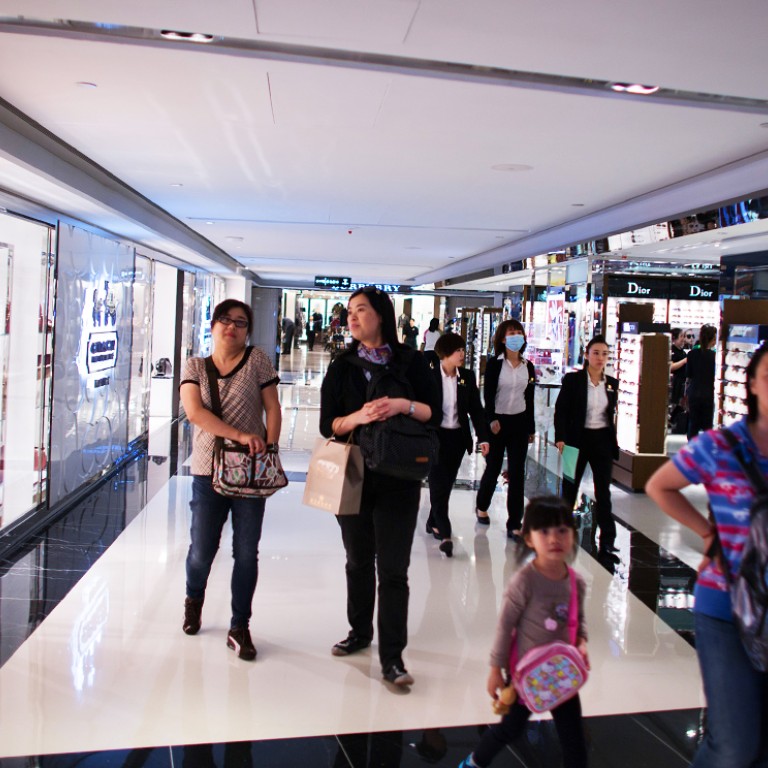
Hong Kong goes on a recruitment drive
Half of employers plan to increase staff, with bankers and retail sector leading the way
Despite fears that the prodemocracy Occupy protest would hit Hong Kong's economy, the number of firms planning to increase staff is at the highest level for more than three years, according to a report by recruitment firm Hudson.
The company polled 166 employers in November, when the civil disobedience campaign that lasted 79 days was in full swing, blocking major roads in an effort to press for genuine universal suffrage.
The survey found that 52 per cent of firms were planning to increase their permanent staff numbers in the first half of 2015, up 5.9 per cent compared to the second half of last year.
"We don't feel that Occupy Central has had any adverse impact - or the impact is very positive in terms of net hiring expectation," said the managing director of Hudson Asia, Tulika Tripathi.
The financial services industry has the strongest hiring sentiment, with 65 per cent of employers looking to increase the headcount in the next six months.
The consumer industry came in second, said Tripathi, with demand for luxury goods and health care products boosting the need for more staff even though the retail sector had been affected by the Occupy protests.
"But when we spoke to employers about hiring expectations this year, given that we typically deal with middle to senior level recruitment, there was no real adverse impact," she added. "Especially, we are looking for a number of people within the luxury goods sector that can travel around the region to look after not only Hong Kong, but Greater China and Southeast Asia.
"A number of employers have said despite Occupy Central, which, frankly speaking, only lasted for a couple of months, there's a strong demand from mainland customers, and that continued to grow despite the disruption we had."
Tripathi also said employees can expect an 8 to 10 per cent salary increase this year thanks to companies making a strong effort to retain staff with niche skills, such as those with internal auditing experience.
Another report on employment, conducted by market research company Ipsos and executive recruitment firm MRIC, found more managers and professionals in the city would not be looking to change jobs in the coming year, compared to last year.
Nearly 430 people were questioned for the survey, which was carried out in October and November. Some 29 per cent intended to stay in their current jobs, up 7 per cent from last year.
Their decision to stay put may be linked to another finding from the survey: only 38 per cent of respondents were positive about the economic and financial outlook, down 8 per cent on last year.
Hong Kong targets asset managers, financial tech and e-commerce firms to invest in city
Asset management, financial technology and e-commerce firms are among those being targeted as the government tries to tempt 370 companies to set up shop in Hong Kong this year.
Last year, Invest Hong Kong - the government department tasked with luring foreign businesses to the city - helped 355 international and mainland companies open headquarters or offices here.
"This number was an all-time high and an increase of 5.4 per cent from the year before," said Simon Galpin, director general of investment promotion at Invest Hong Kong.
Mainland firms continued to top the list, with 75 mainland companies opening offices in the city - a third of them asset management firms. Next was US companies, with 44 making the move, followed by 32 British firms, 28 from Japan and 25 from France.
Galpin said the "through train" stock scheme linking the Shanghai and Hong Kong markets, launched in November, was a factor in drawing more asset managers to the city.
And with similar schemes in the pipeline - such as a stock connect with Shenzhen mooted by Premier Li Keqiang on Monday - mainland firms are being targeted more than ever to invest in the city.
Associate director general of investment promotion, Francis Ho Siu-hong, said the city would continue to benefit as more mainland firms branched out. The body will step up promotion in second-tier mainland cities this year, as well as in Association of Southeast Asian Nations member states - especially Malaysia and Indonesia. It will target financial technology, e-retail, e-marketing and maritime services firms.
Neighbouring Guangdong province, Tianjin and Fujian were all given the green light last month to set up free-trade zones, a year after Shanghai was approved to do so. Ho said the department would pay close attention to their development, adding that Hong Kong still had advantages such as a simple taxation system and low tax rates.
Galpin said ongoing political turmoil and the Occupy protests had not deterred companies from investing in the city last year.
